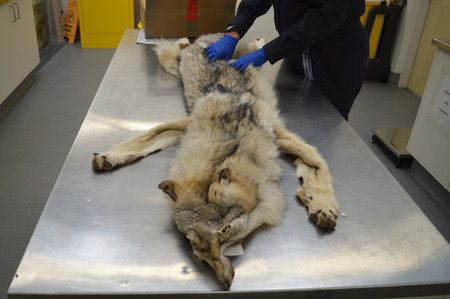The Australian Border Force (ABF) has issued a media release today (12-11-2019) warning Australians attempting to import wildlife items to abide by strict border controls or risk prosecution, following the seizure of a Canadian grey wolf pelt in Perth.
Although the pelt had been declared it did not have the appropriate import permit as required under Australia’s commitment to the Convention on International Trade in Endangered Species of Wild Fauna and Flora (CITES). The convention aims to ensure that international trade in specimens of wildlife does not threaten their survival. It accords varying degrees of protection to more than 35,600 species of animals and plants through regulating trade in these species.
The ABF administers border controls in relation to wildlife trade on behalf of the Department of Environment and Energy, which is the authorising body responsible for issuing such permits under CITES. Â In this case no permit had been issued from them.
The pelt imported from Canada, which includes the snout and paws, was intercepted by ABF officers at a Perth parcel courier depot last week and will now be destroyed. The northern and southern grey wolf sub-species are not listed as a Species at Risk in Canada, but can only be caught or hunted with a permit or licence.
On this occasion, because the pelt was declared, the man will receive an official warning and loss of his item, but the community should be aware that offences relating to the importation of CITES listed wildlife under the Environment Protection and Biodiversity Conservation Act 1999 carry a maximum penalty of 10 years imprisonment and a fine of up to $210,000.
The Australian Government is fully committed to playing a lead role in the global regulation of the trade in wildlife items. As your licensed Customs Brokers and International freight forwarders, Colless Young can advise you about international trade requirements and Australian biosecurity regulations.

